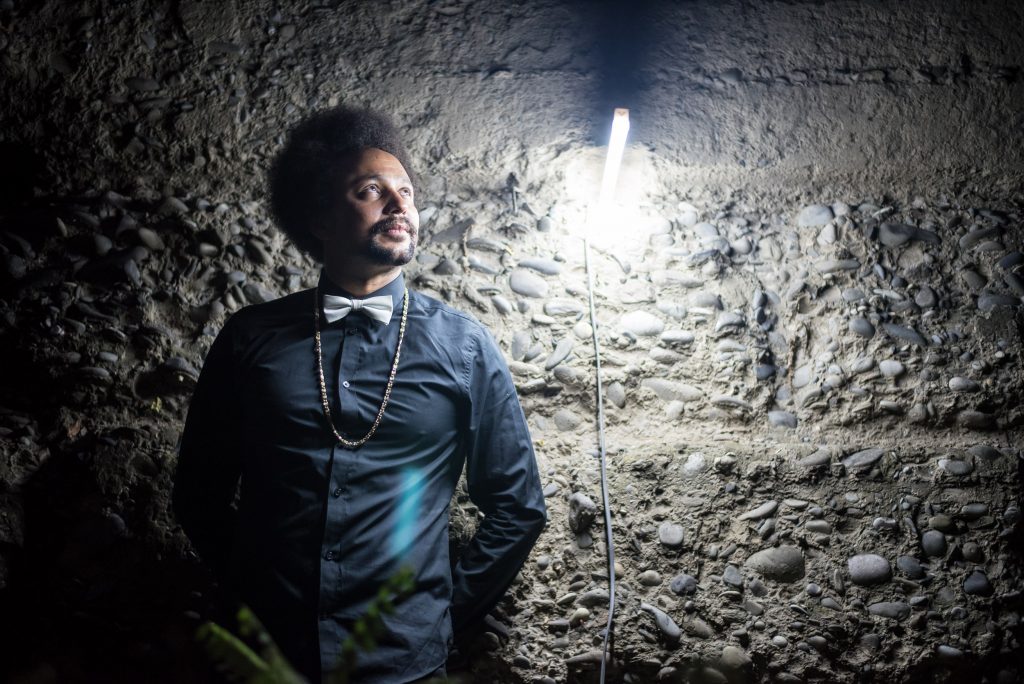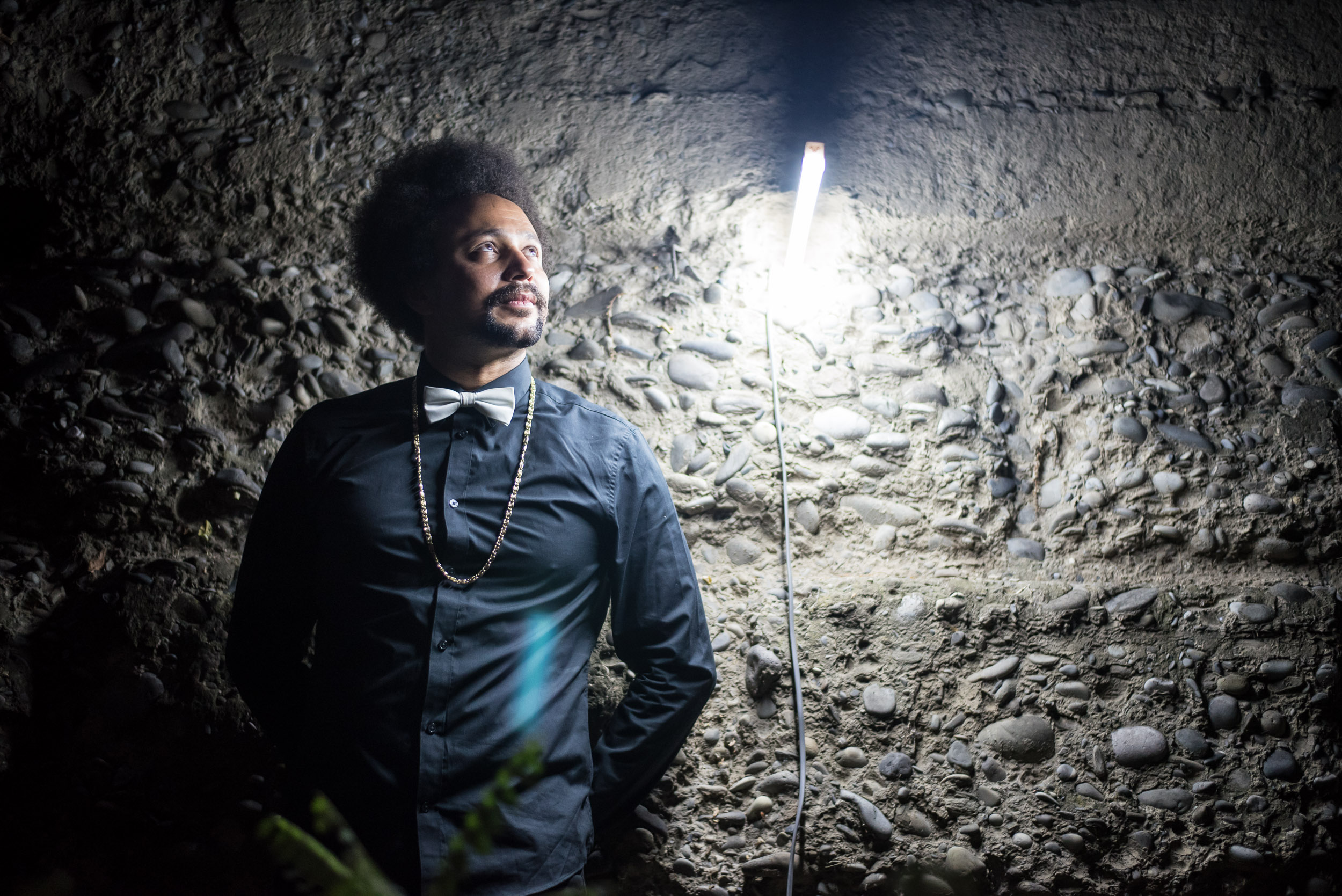David, we know you as a person who has many sides, engaged in a variety of activities and interests – you are an artist, cultural manager, mediator, activist – especially in the (sub)cultural-political field and human rights. You are a member of different cultural institution boards and as such, a very active participant in the development of cultural strategies and policies. How has this Corona-marked period influenced and challenged you?
The Covid pandemic has affected and still affects me and my work in many different ways. First of all, I manage a cultural centre in Innsbruck that is mainly focused on live events such as concerts and performances. When the pandemic started hitting Austria, clubs, bars and cultural centres were the first to close down and as it seems now, they will also be the last to open again. This has set into motion a complex chain of events – we had to contact all our funding partners about the changes in our program, discuss to what extend this affects our funding contracts, etc. We had to reduce our working hours, contact the job centre about this situation, and contact all our members and dozens of bands and promoting companies too. As I am also a board member of different cultural institutions (for the independent cultural scene in the county of Tyrol and the state of Austria), we also had to negotiate with politicians about the emergency funds, tax reliefs and the like. The current situation taught me a lot in terms of trying to find hands-on solutions in a short amount of time and to use my wide-spread network. It’s definitely challenging, but also rewarding, when I see that artists or institutions can benefit from actions we have taken.
We noticed that you were very active in the field of cultural-political force and adaptation to a new situation. Also, very focused on the fragile community of local artists and cultural workers who are particularly affected by this pandemic. What made you step up, and in what way?
I’ve been working in the independent cultural sector for 7 years now. As soon as I graduated from the university, I started working in a cultural centre and got involved in many different forms of cultural work. This taught me a lot about self-organisation, lobbying for the cultural scene, talking to people in politics and negotiate about funding. In 2017, the TKI (the lobbying institution for the independent culture scene in Tyrol) asked me to become a board member. At the same year, I also got the opportunity to become a board member for IG Kultur which represents the independent scene in Austria. Of course, I said yes, as it gave me the opportunity to get to know many people from all over the country who have been working in the field for decades. I benefit from every meeting and discussion that I am involved in and I am eager to learn more. My main passion is to support artists and cultural institutions as well as raise awareness about the importance of art and culture in our daily lives. It’s more than just a pretty hobby for weekends – for a lot of people it is their main focus in life and the engine that keeps them running. However, a big part of the people working in the arts or in the cultural sector work under difficult financial circumstances – the current pandemic makes this even clearer. A big goal is to improve the working and living conditions of these people in the long term and to point out that they make a big contribution to the society.
What solutions are currently offered to the local artists and cultural workers in Austria? Could they be considered helping considerably?
Austria is a federation – so there are different relief funds on every level: from the Austrian government, from the state and from the local councils. It’s often hard for individuals to know where exactly they have to go or whom they have to ask in order to get the actual help. One of our jobs at TKI is to make these structures easier to understand and to talk to the initiatives and politicians directly and give them feedback about what’s needed. A problem is the processing time – a big part of applications hasn’t been answered in months and it takes far too long for the financial help to reach those who need it. Also there is often too much bureaucracy for too little money.
What are your next steps and in which areas do you see the need and space for improvement?
It is important to achieve a situation that makes it possible for artists and cultural institutions to make realistic predictions about their future. How long can they count on city councils and the state to offer them financial aid? What are their possibilities to avoid bankruptcy or mass lay-offs? All institutions have different needs, but especially clubs and centres which are focused on regular/moving events are affected by the current limitations. When will it be possible to host events again without people having to sit? When will dancing in closed rooms be allowed again? Why are there so many different rules for the amount of people allowed in one space (train, restaurant, club)? There are still a lot of questions that need to be answered.
Please describe the current atmosphere in Tyrol, ore, more precisely, the one on the cultural scene of Innsbruck?
That’s difficult to say. My understanding of “culture” and “art” is rather broad in a sense that I also see clubs and cultural hubs and spaces for (sub)cultural production. I am also a board member of the Tiroler Landestheater, which is the biggest theatre in Tyrol and more focused on established theatre, musicals and operas. So I see a lot of different aspects and hear many different voices within the Tyrolean scene. The pandemic has definitely affected everyone, but it has hit freelancers (e.g. technicians) and self-employed artists especially hard. The event sector (event technicians, rental companies, etc.) are struggling, many of them won’t survive months without the events happening. The more “established” cultural institutions such as state museums or theatres are the most likely to be saved by the government – it’s a different situations for smaller independent initiatives. There is a lot of competition going on – tradition vs. experimental – folk music vs. underground, etc. Also too many decision-makers contemporary art and cultural institutions are still kind of obscure; like what are they even doing? Is this art or just a waste of time? Does it sell? This definitely doesn’t make life easier at the moment.
Has your intense engagement activities in a variety of different areas, as well as your research and experience, have made you a bit of a “clairvoyant”? What would you predict will happen in the future in the field of cultural events?
As I have said before, one of the most important goals is to make serious planning possible. It’s hard to work in a professional way when you don’t know what the next few months are going to bring. Currently there are new Covid cases happening in the south of Austria, so a big threat would be another lockdown. Many cultural centres and cinemas I know try to adapt and change their formats in order to survive; but there are limits to everything. I don’t think the state can afford another big lockdown and people seem to care less about the limitations over time. I honestly don’t know what’s going to happen.
Any thought you would like to share with the MagiC Carpets platform?
The last couple of months have shown how important art and culture are for the society, for an inspiring input, exchange, leisure-time and recreation. I hope that politicians and the public also see the value of their local culture initiatives, clubs and dedication to their community.
Also: Culture is work and work deserves money.

